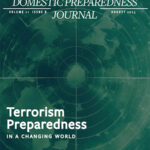The World Health Organization (WHO) is a global United Nations (UN) agency focused on world health and safety, founded in 1948. Countries that are members of the UN qualify for entry into the WHO. Countries that are not UN members can also enter through an application process and vote. Currently, 194 member states coordinate efforts to address global health crises. As the U.S. now considers withdrawing its membership, there are potential impacts to both local and global emergency preparedness and response.
On January 20, 2025, the new U.S. president signed an executive order to begin the process of withdrawing the U.S. from the WHO. The executive order notes that National Security Affairs will safeguard public health and ensure biosecurity without partnership from the WHO.
Withdrawal from the WHO requires a one-year notice for the U.S., as noted in the WHO Constitution, which states:
Accepted subject to the provisions of the joint resolution of the Congress of the United States of America approved 14 June 1948 (Public Law 643, 80th Congress), section 4 of which reads as follows: “In adopting this joint resolution the Congress does so with the understanding that, in the absence of any provision in the World Health Organization Constitution for withdrawal from the organization, the United States reserves its right to withdraw from the organization on a one-year notice, provided, however, that the financial obligations of the United States to the organization shall be met in full for the organization’s current fiscal year.”
The Role of WHO in Emergency Preparedness
WHO outlines several well-established emergency preparedness and response initiatives, which include
- Surveillance: Systematic global monitoring of issues that may evolve into public health emergencies. This approach enables rapid response and containment of emerging health threats.
- Prevent, prepare, and respond: WHO works in all aspects of the process, through communication, education, and collaboration. Additionally, through the Global Health Emergency Corps (GHEC), the goal is to strengthen this approach through global emergency leader networks. Resource allocation and response strategies are coordinated internationally by WHO during health emergencies.
- Research: WHO coordinates global efforts to help accelerate needed research into potential medical interventions during emergencies. This coordinated effort, which was seen most recently during the COVID-19 pandemic, utilizes a global network of scientists and professionals to help bring ideas and solutions to the forefront when every minute is critical.
- Establishment of best practices: Through research, data sharing, and after-action analysis, WHO can provide best practices for dealing with health emergencies.
Global Impacts of U.S. Withdrawal from the WHO on Emergency Preparedness
The withdrawal of the U.S. from the WHO can cause significant issues with all areas of critical global emergency preparedness functions. These global implications can include
- A significant loss of funding, as the U.S. is the largest financial contributor to WHO;
- Loss of expertise and experience;
- Delays in all aspects of global emergency preparedness, including surveillance and detection;
- Issues with international response, as the U.S. has always been a key member state in terms of championing global health;
- Fewer resources for training healthcare workers and providing technical support and assistance;
- Delays in treatments and the creation of life-saving vaccines, which could lead to a global health crisis, as the U.S. is a leader in developing medical interventions; and
- Loss of relationship between WHO and the Centers for Disease Control (CDC), which can have detrimental impacts on advances in healthcare, vaccines, and public health initiatives
Domestic Implications of U.S. Withdrawal from the WHO on Emergency Preparedness
In addition to global implications, the impact of this action will also hit domestically in the U.S. Potential concerns include
- Less access to global health information, which can threaten the nation’s ability to prepare for and respond to public health emergencies;
- Increased vulnerability, as the WHO resources and collaboration would no longer be available. For example, the loss of access to the WHO’s database of influenza strains, leading to a potential increase in U.S. deaths from influenza outbreaks;
- Political repercussions, including strained relationships with other countries, decreasing the nation’s ability to influence international health policy; and
- Economic repercussions.
Local Preparedness for Potential Impact—Planning Starts Now
In the wake of this potential change, emergency managers must begin to evaluate their current programs and determine any potential impacts in their local sectors. Considerations at the local level include increased stress on local healthcare systems due to the potential loss of educational and awareness campaigns, decreased health surveillance, and more limited response resources, should any disease outbreaks occur. Understanding that this process can take up to a year (if withdrawal from the WHO goes through), now is the time to consider long-term impacts and develop contingency plans and strategies for mitigating any controllable threats. Additionally, consideration must be given to potential funding needs that may arise due to this change.

Tanya M. Scherr
Tanya Scherr holds a Ph.D. in public policy administration with a healthcare and emergency preparedness focus. She is an associate professor in healthcare administration for the University of Arizona and has three decades of healthcare experience. Along with being a certified fraud examiner since 2011, she is also a former firefighter–emergency medical technician (EMT), previously licensed in several states, and held national certification. She has held several executive and board of director positions for community nonprofits that focus on women’s equality, domestic violence, and sexual assault.
- Tanya M. Scherrhttps://domesticpreparedness.com/author/tanya-m-scherr
- Tanya M. Scherrhttps://domesticpreparedness.com/author/tanya-m-scherr
- Tanya M. Scherrhttps://domesticpreparedness.com/author/tanya-m-scherr
- Tanya M. Scherrhttps://domesticpreparedness.com/author/tanya-m-scherr





